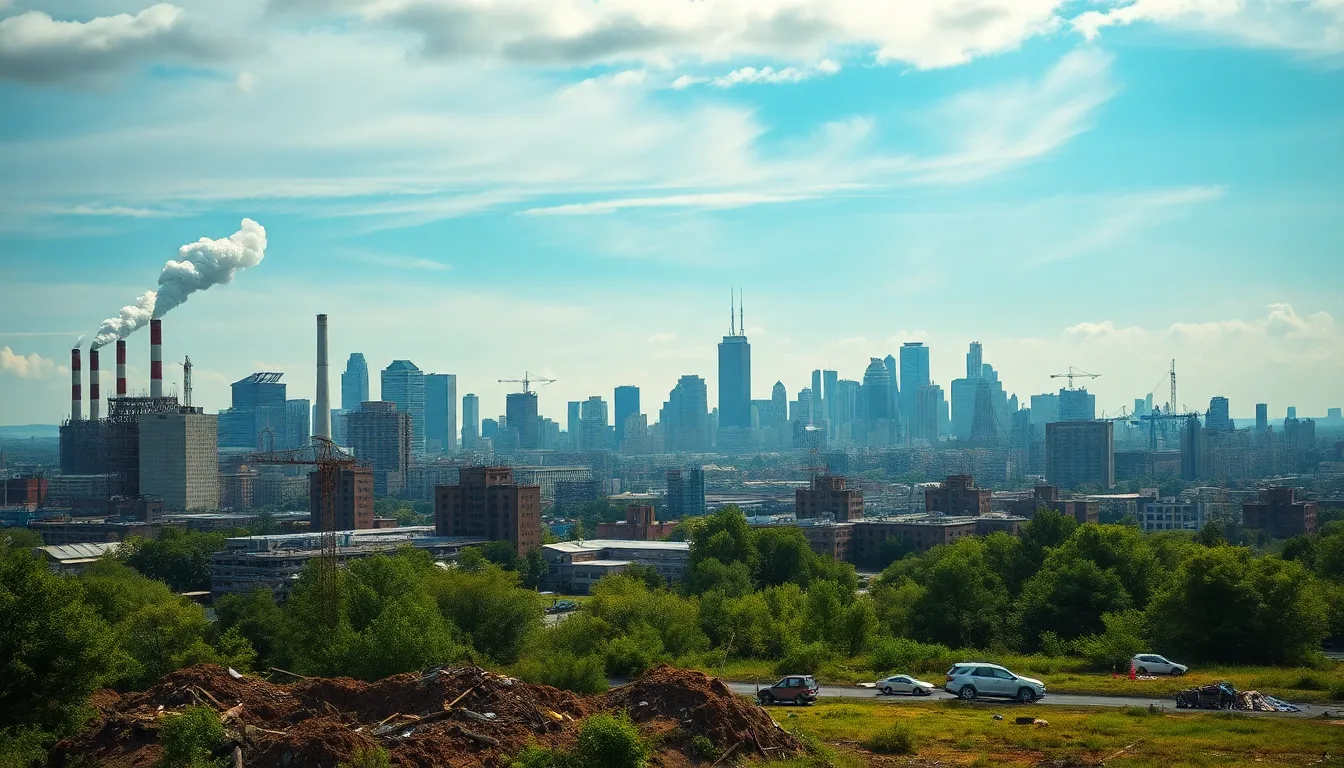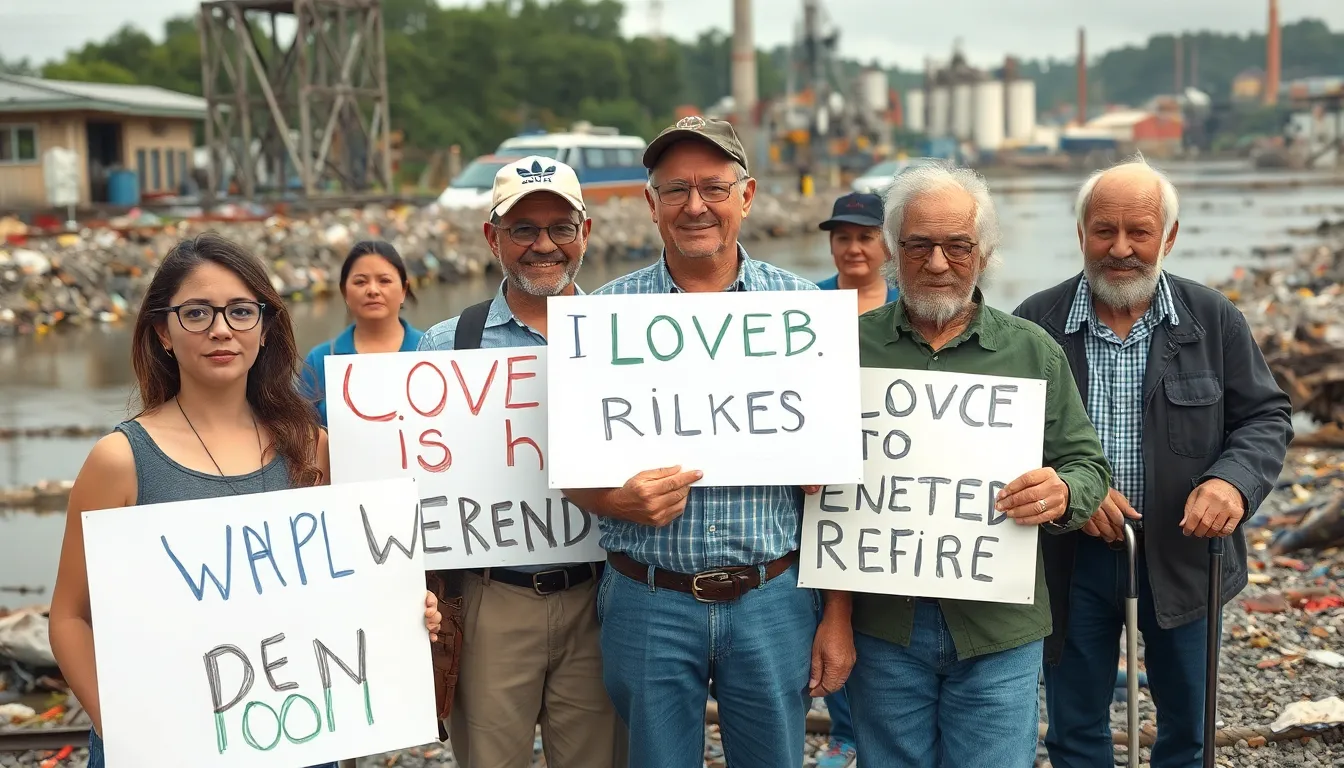In a world where the environment often feels like the underdog in a superhero movie, the recent trend of environmental rollback is turning the plot upside down. Picture this: just when Mother Nature thought she was getting a break, a wave of policy changes threatens to send her back to the drawing board. It’s like watching a bad sequel where the villain returns, and this time, they’re armed with deregulation and a disregard for climate science.
Table of Contents
ToggleUnderstanding Environment Rollback
Environmental rollback refers to the process of diminishing or eliminating existing environmental protections, often through policy changes. This trend poses significant risks to ecosystems and public health.
Definition of Environment Rollback
Environment rollback encompasses actions that weaken environmental regulations, impacting air, water, and land protections. It involves repealing laws or regulatory measures enacted to safeguard natural resources. Often, these rollbacks prioritize economic gain over sustainability, pushing forward agendas that benefit industries at the cost of environmental health.
Historical Context
Historical trends reveal a pattern of environmental rollback coinciding with political shifts. Since the late 20th century, significant legislation, such as the Clean Air Act and Clean Water Act, established crucial protections. However, during various presidential administrations, efforts to deregulate have repeatedly surfaced. Notably, the 2017 decision to withdraw from the Paris Agreement marked a pivotal moment, indicating a departure from international climate commitments. This context illustrates ongoing tensions between environmental advocacy and industrial interests, shaping policies that affect climate strategies.
Causes of Environment Rollback

Environmental rollbacks arise from various factors that contribute to a decline in protections for ecosystems and public health. Key drivers include industrialization, urbanization, and policy failures.
Industrialization and Urbanization
Industrialization increases resource extraction and pollution. Urbanization leads to habitat loss and greater waste generation. Developing nations often prioritize economic growth over environmental sustainability, exacerbating these issues. Manufacturing industries frequently lobby for fewer restrictions, promoting deregulation. Cities expand, and infrastructure projects disrupt ecosystems, often disregarding environmental impacts. Collectively, these trends create pressure on regulators to sacrifice environmental standards for perceived economic benefits.
Policy Failures
Policy failures weaken existing environmental protections. Legislative gaps often allow for inconsistent enforcement of regulations. Inadequate political commitment leads to reluctance in addressing climate change challenges. Elected officials may prioritize immediate economic interests, thus undermining regulations that affect air, water, and land quality. Ignoring scientific evidence further erodes public trust and hampers effective environmental policy. Short-term economic gains overshadow comprehensive environmental strategies, fostering an environment where rollbacks thrive.
Impacts of Environment Rollback
Environmental rollbacks significantly threaten ecosystems and public health, leading to severe consequences. These changes create pathways for biodiversity loss and accelerate climate change.
Biodiversity Loss
Biodiversity loss emerges as a critical impact of environmental rollback. Habitat destruction occurs when regulations protecting ecosystems weaken. Species extinction rates increase as natural habitats face degradation, pushing many species closer to the brink. Pollinators, such as bees and butterflies, play vital roles in food production, yet their populations decline due to harmful practices enabled by deregulation. Aquatic ecosystems suffer when protections for wetlands and water bodies diminish, affecting fish populations and overall water quality. Studies indicate that biodiversity is essential for ecosystem resilience, stability, and the provision of services vital for human survival.
Climate Change Acceleration
Climate change acceleration results directly from environmental rollbacks. Regulatory easing permits higher greenhouse gas emissions, intensifying global warming. Changes to fossil fuel extraction regulations foster increased carbon dioxide levels in the atmosphere. Deforestation, often linked to weakened protections, further contributes to heightened atmospheric carbon. Scientific reports emphasize these actions exacerbate climate-related disasters, such as wildfires and hurricanes. Communities face increased health risks and economic burdens as climate impacts intensify. The cumulative effects of these rollbacks create barriers to achieving climate goals and adaptive responses, negatively impacting both current populations and future generations.
Case Studies of Environment Rollback
Environmental rollbacks manifest in various regions around the world, illustrating how policy decisions impact ecosystems and health. Case studies provide concrete examples of this concerning trend.
Regional Examples
In the United States, the repeal of the Clean Power Plan has enabled increased emissions from coal-fired power plants. This decision prioritizes short-term economic interests over long-term environmental protection. Similarly, Brazil has seen significant deforestation in the Amazon following weakened regulations under recent administrations. These changes highlight how local policies directly affect biodiversity and climate stability. Furthermore, Australia’s reduction in protections for the Great Barrier Reef has accelerated coral degradation.
Global Trends
Globally, a pattern emerges where countries prioritize economic growth over environmental safeguards. In many nations, governments roll back strict emissions standards to attract investment, leading to increased pollution levels. The European Union’s decision to ease regulations on industrial emissions has gained criticism, affecting air quality. China also faces challenges as rapid urbanization results in weakened environmental management practices. These trends underscore a worrying global shift that undermines environmental advancements.
Solutions and Mitigation Strategies
Addressing environmental rollbacks requires a multifaceted approach. Implementing strategic policies and fostering community engagement play crucial roles.
Policy Recommendations
Updating existing regulations proves essential for enhancing environmental protections. Strengthening the Clean Air Act and Clean Water Act offers substantial pathways to combat pollution. Establishing clear enforcement mechanisms enhances accountability for industries. Integrating climate science into policy frameworks ensures informed decision-making. Incentivizing renewable energy development supports sustainable economic growth. Promoting transparency in regulatory processes allows for increased public participation. Allocating funding for environmental restoration projects contributes to reversing damage. Prioritizing public health in environmental policies protects vulnerable communities from harmful exposures.
Community Engagement
Mobilizing local communities fosters grassroots support for environmental protections. Creating outreach programs raises awareness of the impacts of rollbacks. Empowering citizens to participate in environmental decision-making strengthens advocacy efforts. Forming alliances with local organizations enhances resource sharing and knowledge exchange. Offering training workshops equips community members with skills to address local environmental issues. Encouraging youth involvement cultivates a new generation of environmental advocates. Utilizing social media amplifies community voices, bringing attention to urgent threats. Establishing citizen advisory boards increases collaboration between communities and policymakers.
Environmental rollbacks pose significant threats to ecosystems and public health. As policies shift towards deregulation, the balance between economic growth and environmental sustainability becomes increasingly fragile. The impacts are felt globally as biodiversity loss accelerates and climate change intensifies.
Addressing these rollbacks requires a concerted effort from policymakers and communities alike. By advocating for stronger regulations and promoting grassroots engagement, society can work towards restoring vital protections. The future hinges on the collective commitment to prioritize the environment, ensuring a healthier planet for generations to come.




